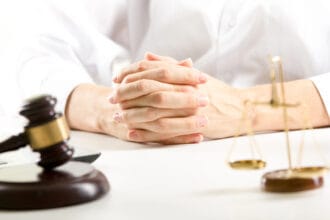I read an article in Scientific America that discussed a recently released NOAA report that said many people in Joplin, on May 22nd, failed to take action to protect themselves even though there were tornado warning systems in place. Unfortunately, this makes me look really stupid since I had assumed and stated that having a tornado warning system in place probably saved more lives and that the death toll would have been much higher. I am not alone in my false assumption. The main finding in this report is that people had grown desensitized to the initial warnings delivered through sirens, warnings on TV, radio, internet, and other media. What finally worked, to get people to act, was confirmed credible warning – like seeing the funnel cloud, or the visuals provided in other media.
I can imagine this also happens during Hurricane Season, when coastal towns are forced to evacuate only to have little to no damage. After so many ”drills” – residents decide to stay versus dealing with the hassle of evacuating. Obviously this is a huge mistake. If you warn people too much, warnings lose their intensity, if you warn people too little, you lose lives and you have to answer to why there weren’t enough warnings. Joplin could have been worse. The F5 tornado moved slowly giving many people time to realize the intense danger they were facing. Not all disasters happen like that. So how do we get credible information out there to the masses and can we force change in how people view warnings?
Yesterday I toured a 9-1-1 center. It’s a first rate operation but even they shared their reluctancy to use new technology until “all the bugs have been worked out”. When asked how they plan to use social media, we were told that 9-1-1 centers are all faced with not when but how they will incorporate social media into their processes. For example, texting 9-1-1- while hidden in a closet when someone is breaking in to their home or providing video or photos of a crime in progress. There are many challenges they face. During the earthquake in Virginia this 9-1-1 center said that 70% of the calls they received were anxiety related and not true emergencies. So outreach to the public through social media on the use of social media for TRUE emergencies will be just one of the many things they will need to address. Crisis Incident Stress Debriefing will also have to change to address the stress call center staff will have once they view a crime taking place or are exposed to other disturbing images. But what 9-1-1 centers can’t afford to do is overlook the importance of the role social media plays during disasters for public health and safety – which is pushing credible information out to a mass audience. But it also has benefits to emergency management other than just pushing information out there.
The Congressional Research Service (CRS) just released a report called “Social Media and Disasters:  Current Uses, Future Options, and Policy Considerations“. CRS acknowledges the role social media has played over the last 5 years in emergencies and disasters, stating that “…social media sites rank as the fourth most popular source to access emergency information.” The report breaks social media into two categories of use. The first being a push system of information – with feedback from their audience (by following, retweeting, posting, liking, reblogging, etc.) and the second as a “emergency management tool”. The second category is my favorite and is slowly being integrated (although not wholeheartedly embraced) by Federal, State, Tribunal, and local agencies. Social media can be used in this way to:
Current Uses, Future Options, and Policy Considerations“. CRS acknowledges the role social media has played over the last 5 years in emergencies and disasters, stating that “…social media sites rank as the fourth most popular source to access emergency information.” The report breaks social media into two categories of use. The first being a push system of information – with feedback from their audience (by following, retweeting, posting, liking, reblogging, etc.) and the second as a “emergency management tool”. The second category is my favorite and is slowly being integrated (although not wholeheartedly embraced) by Federal, State, Tribunal, and local agencies. Social media can be used in this way to:
- Provide emergency communications
- Upload images for damage estimates
- Provide situational awareness too responders
- Receive assistance requests
- Emergency warnings and alerts
- Citizen awareness and outreach
- and more!
Changing people’s desensitized attitude toward warnings is going to take time. Organizations need to work at getting their messages across and at the same time provide outreach and awareness. During a disaster ask yourself what’s in your toolkit?
Scridb filter







